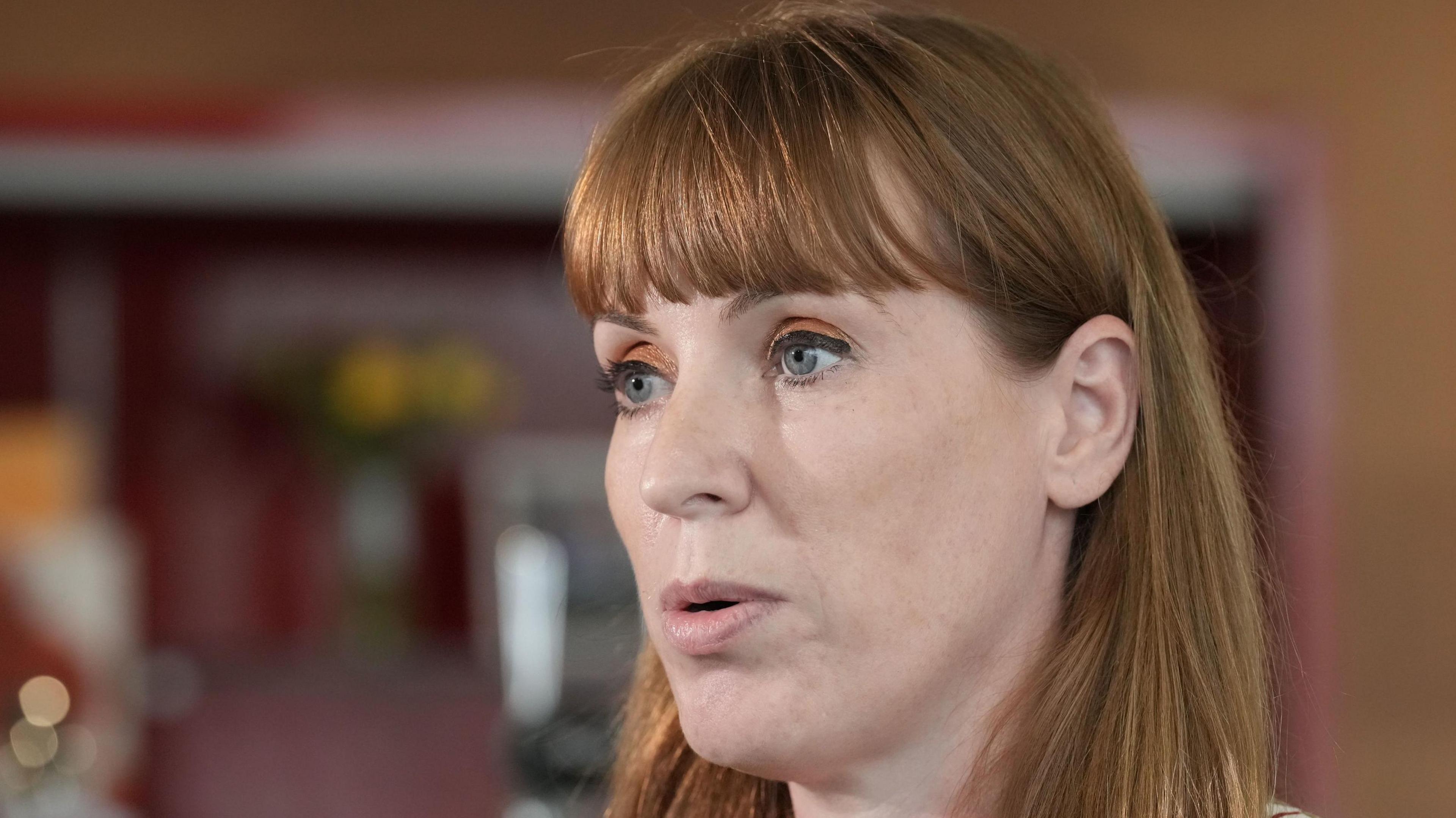Rayner meets businesses and unions on workers' rights

- Published
Deputy Prime Minister Angela Rayner and Business Secretary Jonathan Reynolds have hosted a meeting with business representatives and trade unions to discuss the government's plan for workers' rights.
The government says its Employment Rights Bill would ban the "exploitative" use of zero-hours contracts and end "fire and rehire" practices.
Unions have largely welcomed the proposals, but some business groups have expressed reservations.
Following the meeting, Ms Rayner hailed "a new era of partnership" that would "bring benefits to everyone across the country striving to build a better life".
Attendees included the Trades Union Congress, Unite, Unison and the GMB, along with business representative groups the CBI, the British Chambers of Commerce and the Federation of Small Businesses.
The government said that during the meeting participants had "agreed to wipe the slate clean and begin a new relationship of respect and collaboration to help deliver the government's first mission - to kickstart economic growth".
New zero-hours rules 'a step in the right direction'
- Published22 July 2024
Sensitive and fraught union talks a sign of things to come for Labour
- Published15 May 2024
Why do companies fire and rehire their workers?
- Published12 September 2024
In opposition, Labour had long promised to ban zero-hours contracts which allow employers to pay staff only when they need them, with no guarantee of regular hours.
Its Employment Rights Bill, announced shortly after the party won the general election, aims to scrap the contracts.
The government also says it would end fire and rehire practices where companies dismiss workers and then hire them back on worse conditions.
Another change the Labour government hopes to introduce include giving workers rights to parental leave, sick pay and protection from unfair dismissal from the first day of employment.
During the election campaign, the Conservatives said Labour's plans would burden businesses with regulation and reduce investment.
Unite leader Sharon Graham expressed concern Labour's plan had too many caveats, with "more holes in it than Swiss cheese".
A draft of the Employment Rights Bill is likely to be published in the autumn, providing more details of how the government intends to implement its manifesto promise.
'Support or stifle'
Following the meeting on Wednesday, Tina McKenzie, policy chair at the Federation of Small Businesses, said it would be "crucial" for the government to "try and reduce harm to employment, small businesses and the economy from any and every negative impact of these proposals".
Jonathan Geldart, director general of the Institute of Directors, said "meaningful dialogue" would be crucial in determining whether the government's proposals would "support or stifle economic growth".
TUC general secretary Paul Nowak said the meeting was "an important chance for unions and businesses to discuss the shared gains that the government's reforms will bring".
Christina McAnea, head of Unison, said: "Britain’s problems are best solved when governments, unions and businesses work together. Lifting standards and making work pay will drive the economic growth to deliver proper investment in essential services."